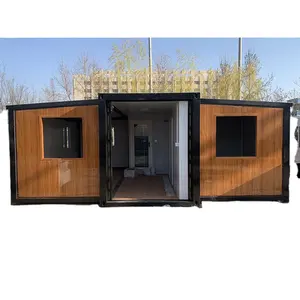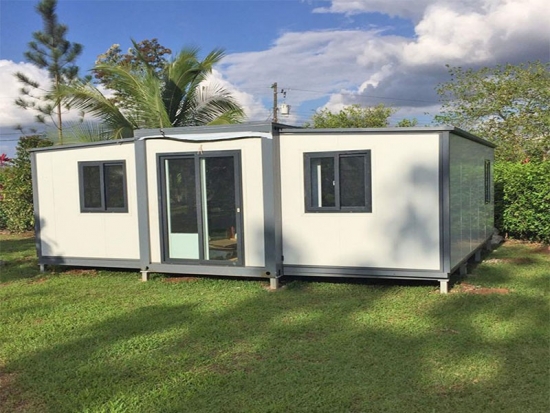Introduction: Modern container houses have emerged as a cornerstone in redefining contemporary sustainable living. Crafted from repurposed shipping containers, these homes offer a multitude of advantages over traditional housing structures. This discussion aims to illuminate the merits of modern container homes, highlighting their practical benefits and contributions to innovative, sustainable living.
Versatility and Customization:
Modern container homes epitomize versatility and customization, empowering homeowners to create personalized living spaces. They offer a versatile canvas for architects and residents to unleash creativity, enabling tailored configurations to suit individual preferences and spatial needs. This adaptability fosters unique and bespoke living environments, catering to diverse lifestyles and design inclinations.

Cost-Efficiency and Environmental Sustainability:
Among the foremost advantages lies in the cost-effectiveness of modern container homes. By repurposing shipping containers, construction costs are significantly reduced compared to conventional building methods. This practice aligns seamlessly with sustainable living principles, utilizing existing resources and minimizing the environmental impact associated with traditional construction materials. Integration of eco-friendly elements further enhances sustainability, leading to reduced long-term energy consumption and costs.
Efficient Construction and Structural Integrity:
Modern container homes boast efficient construction practices, leveraging pre-existing structures to expedite the building process. Additionally, the inherent durability of steel shipping containers ensures structural integrity and resilience against adverse weather conditions and natural disasters. This robustness guarantees a secure living environment and reduces long-term maintenance expenses.
Adaptability in Location and Flexibility:
Meanwhile, these homes offer unparalleled adaptability in choosing their location. Their portability allows them to seamlessly integrate into various settings, catering to diverse preferences and lifestyle choices. Their mobility proves particularly advantageous for those seeking flexible or temporary housing solutions, providing a practical option for a wide range of residential needs.

Community Impact and Social Contribution:
Meanwhile, beyond individual advantages, modern container homes contribute positively to communities. They facilitate community-driven projects like affordable housing initiatives or emergency shelters. Their cost-effectiveness and adaptability make them a feasible solution for addressing housing shortages, significantly impacting societal well-being.
Conclusion:
In summary, modern container houses represent a paradigm shift in sustainable living. Their versatility, cost-effectiveness, environmental sustainability, efficient construction, adaptability in location, and potential for community impact make them an attractive choice for contemporary living. Embracing these innovative dwellings not only offers practical advantages but also propels us toward a future where sustainable and adaptable housing solutions play a pivotal role in fostering a conscientious and responsible lifestyle. As society continues to explore alternative housing options, modern container homes stand as a testament to innovation and sustainability in the pursuit of a more eco-conscious way of life.